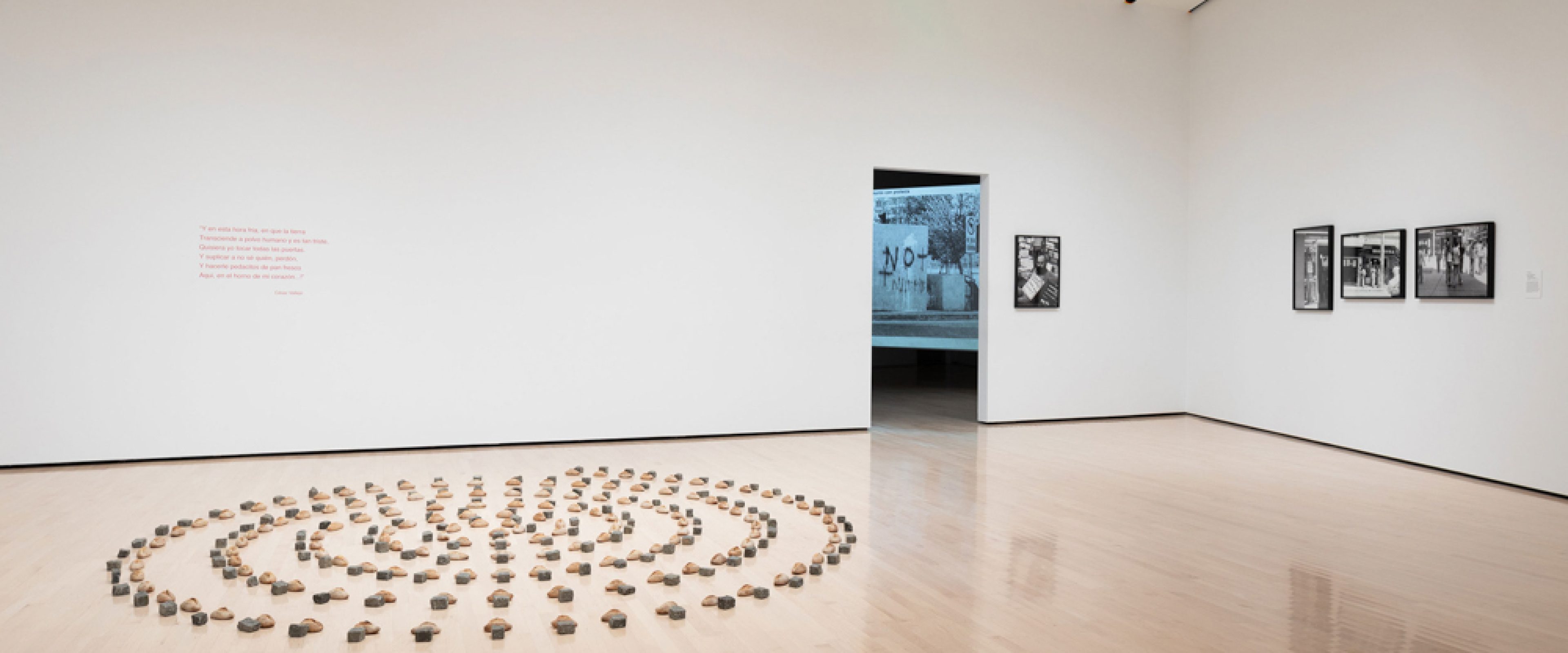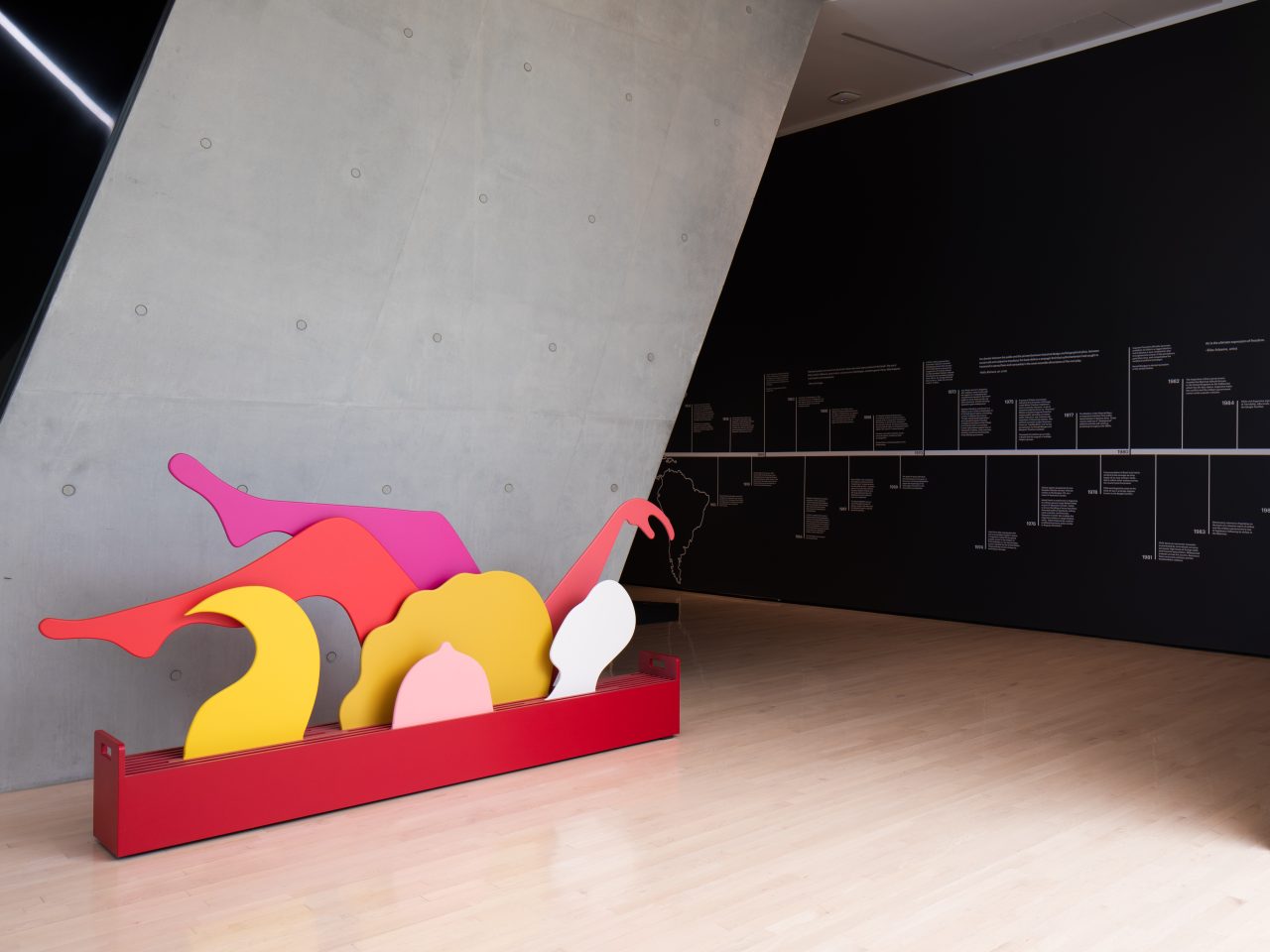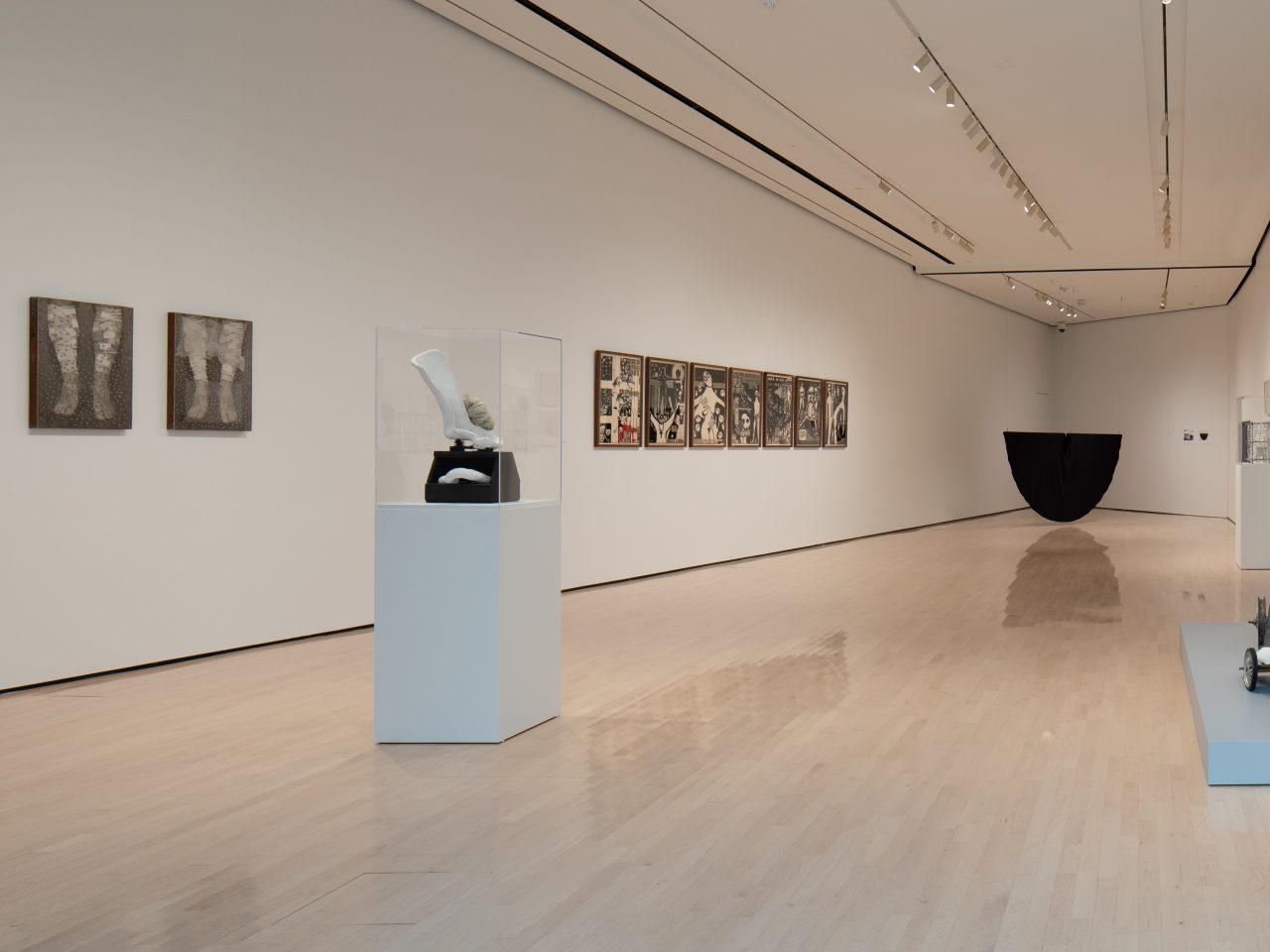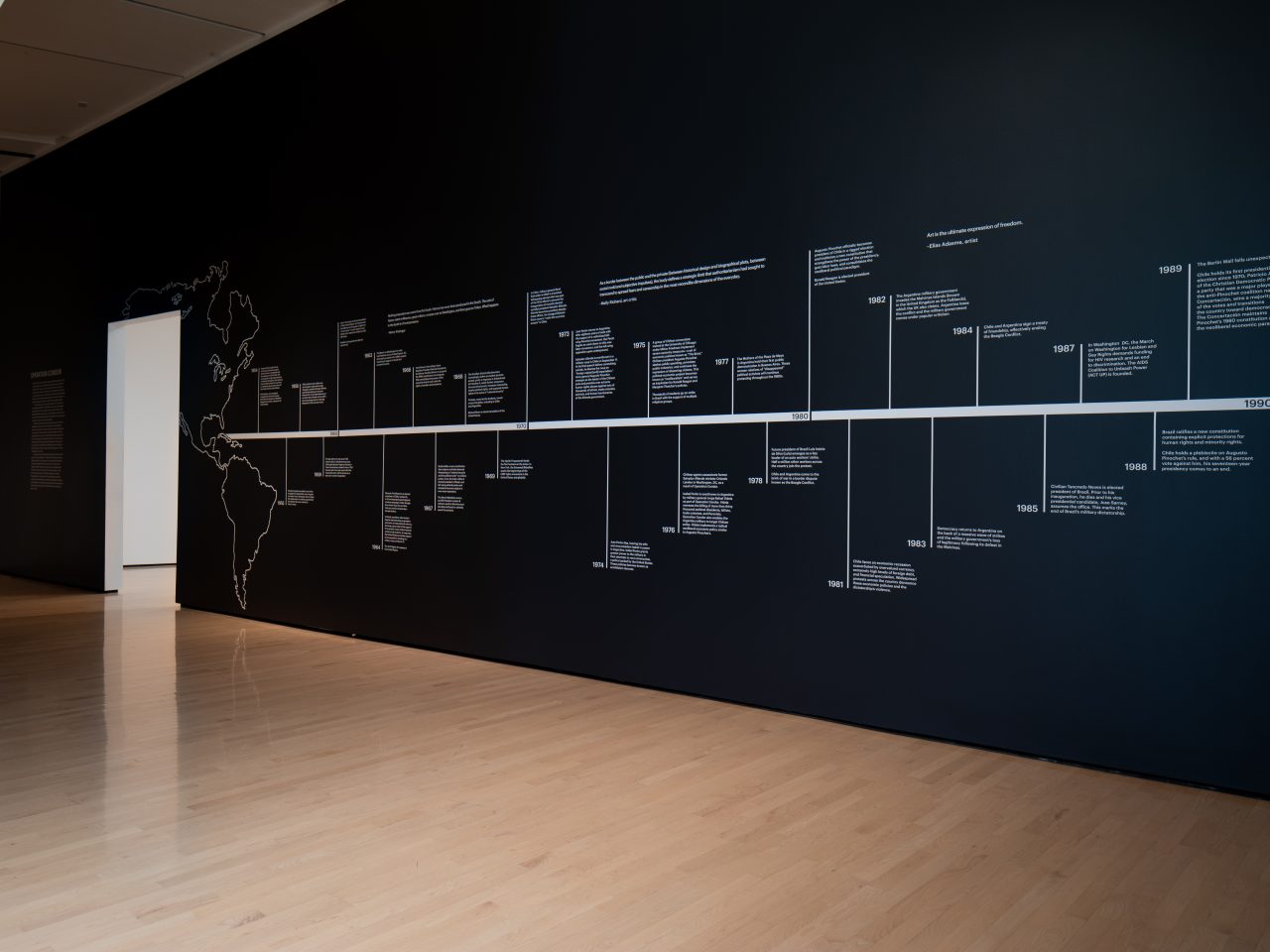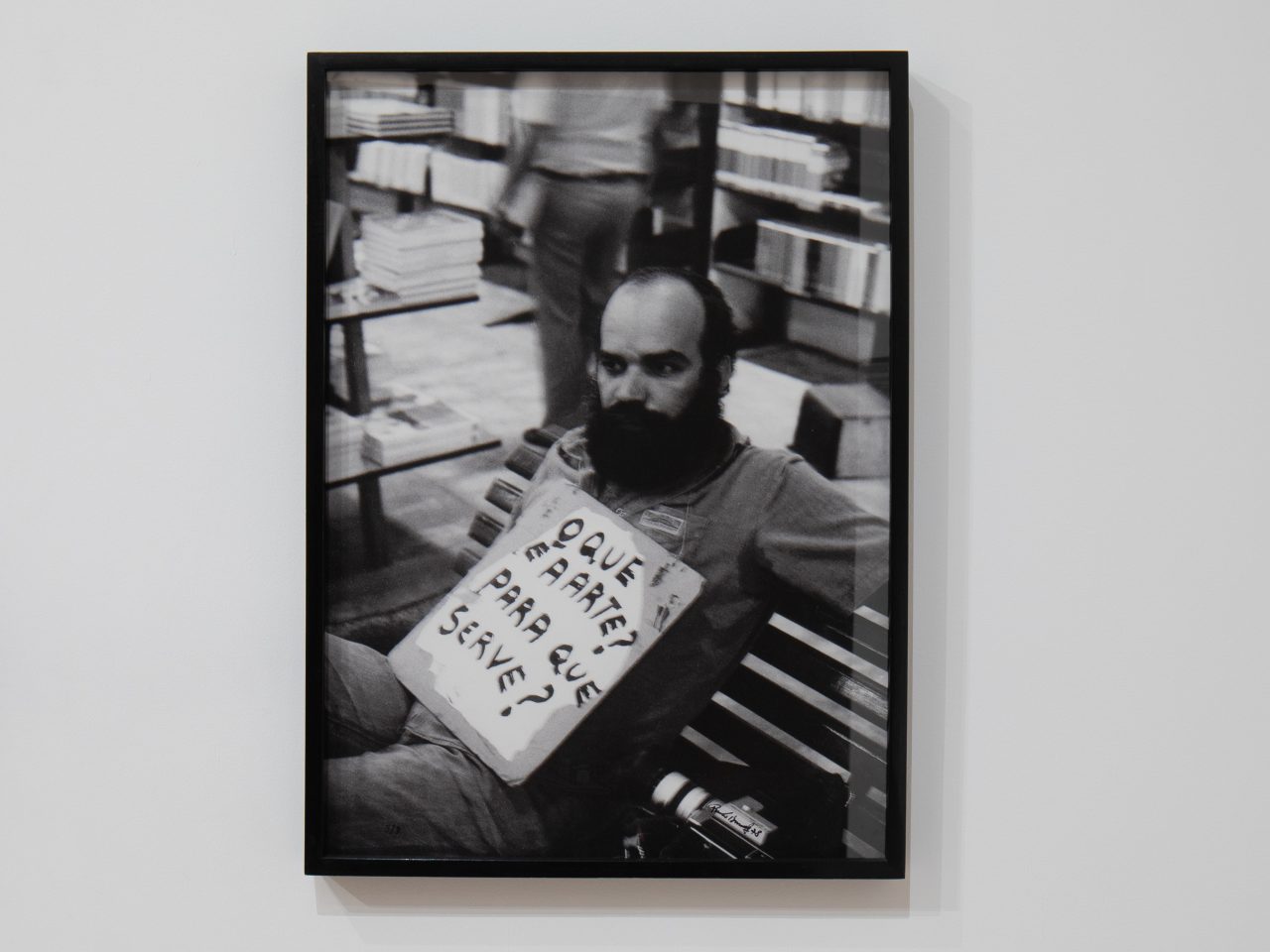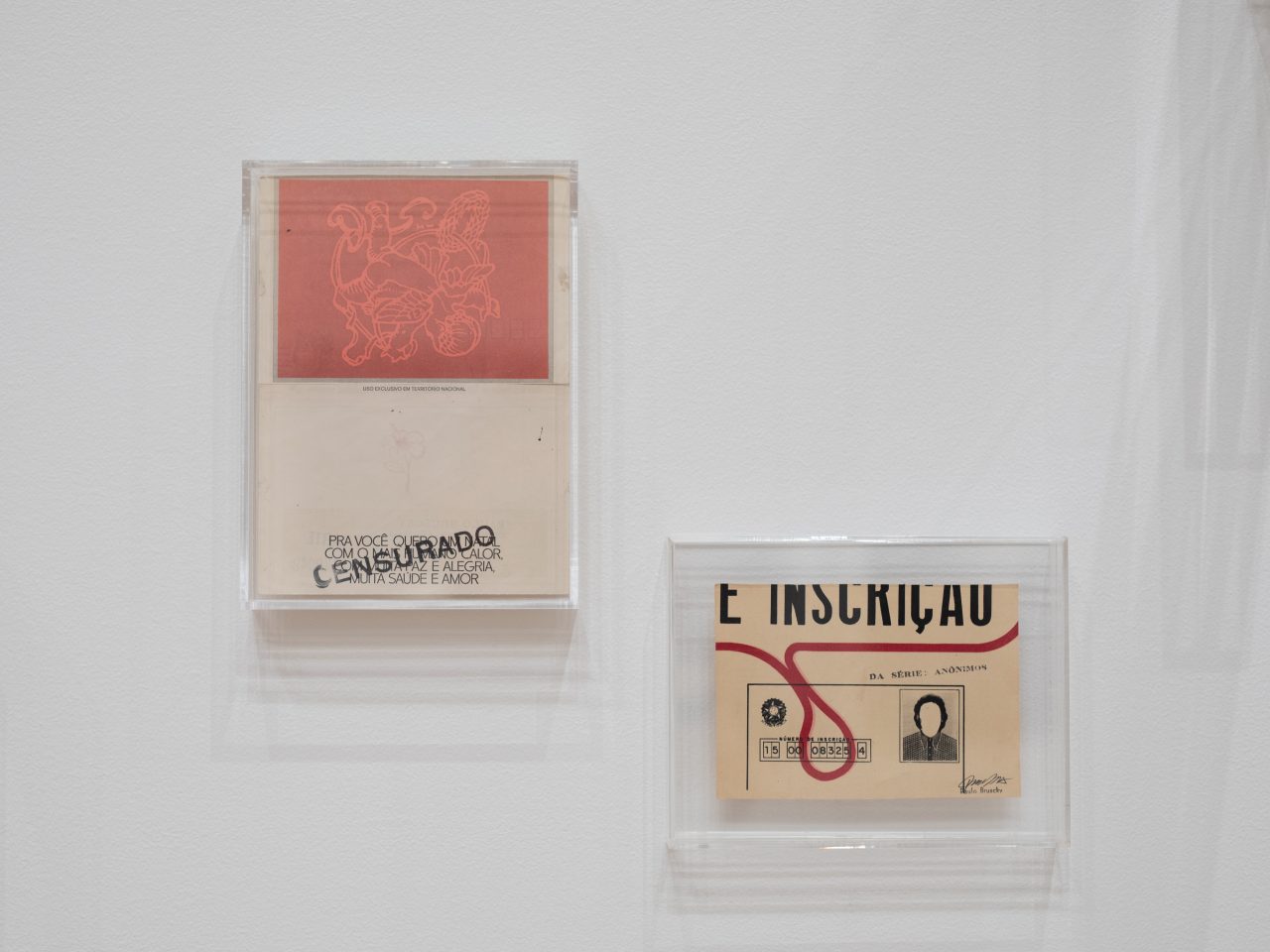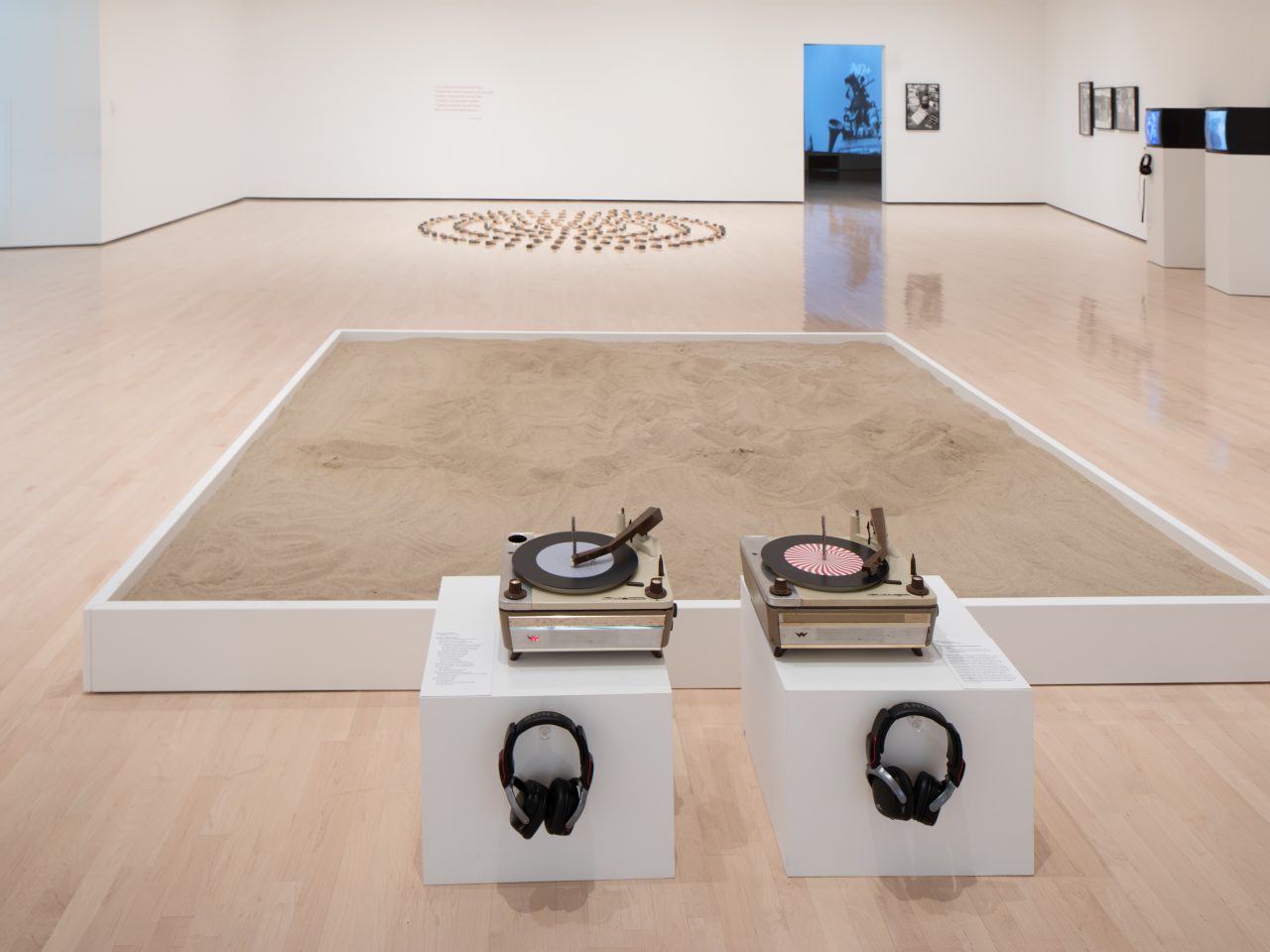The Edge of Things: Dissident Art Under Repressive Regimes is organized by the Eli and Edythe Broad Art Museum at Michigan State University and curated by Carla Acevedo-Yates, Associate Curator, with support from Georgia Erger, Curatorial Assistant, Thaís Wenstrom, Curatorial Intern, Patrick O’Grady, Graduate Fellow in History, and Erica Lavista, Student Research Assistant. Support for this exhibition is provided by the Eli and Edythe Broad endowed exhibitions fund and the Center for Studies on Latin American Art (CLACS).
About the Exhibition
What is art for? Can it have a political function by making visible what has been erased or disappeared? During a time of violence and political repression, artists from Argentina, Brazil, and Chile questioned their role in society and the purpose of art itself. Expressing resistance to coercive military dictatorships, they navigated fluid lines between art and politics, public and private space, creativity and life, while experimenting with nontraditional materials and forms. The emergence of conceptual art in Latin America was directly informed by these political conditions and these artists’ sense of urgency in addressing social concerns.
The Edge of Things: Dissident Art Under Repressive Regimes gathers experimental artworks from the 1960s through the late 1980s made in a climate of fear and censorship. Facing oppressive social, political, and cultural conditions, including the persecution, torture, “disappearance,” and murder of dissident citizens, the artists approached the body, as well as the street, as political spaces to express subversion and resistance.
The effects of authoritative regimes on the bodies of citizens is a central theme for all the works in this exhibition—the body being the primary target of state violence and control. Art making offered a critical framework to address painful social realities and lived experiences that were otherwise obscured from public view. For these artists, art was an exercise in freedom, and the body was a material, source, and point of departure. Their diverse visual strategies and actions were a way to communicate, interrogate, and make visible what was being pushed to the edges of official state narratives.
Artists: Elías Adasme, Martha Araújo, Artur Barrio, Fernando “Coco” Bedoya, Paulo Bruscky, Colectivo de Acciones de Arte (CADA), Eugenio Dittborn, Victor Gerhard, Eduardo Gil, Carlos Leppe, Margarita Paksa, Letícia Parente, Dalila Puzzovio, Lotty Rosenfeld, Regina Vater, Edgardo Antonio Vigo, Las Yeguas del Apocalipsis, and Horacio Zabala. Special thanks to Stone Circle Bakehouse.
This exhibition will run parallel to Between Absence and Presence: The Arpilleras Movement in Chile, on view May 28 – Nov. 30, 2019 at the Michigan State University Museum.
